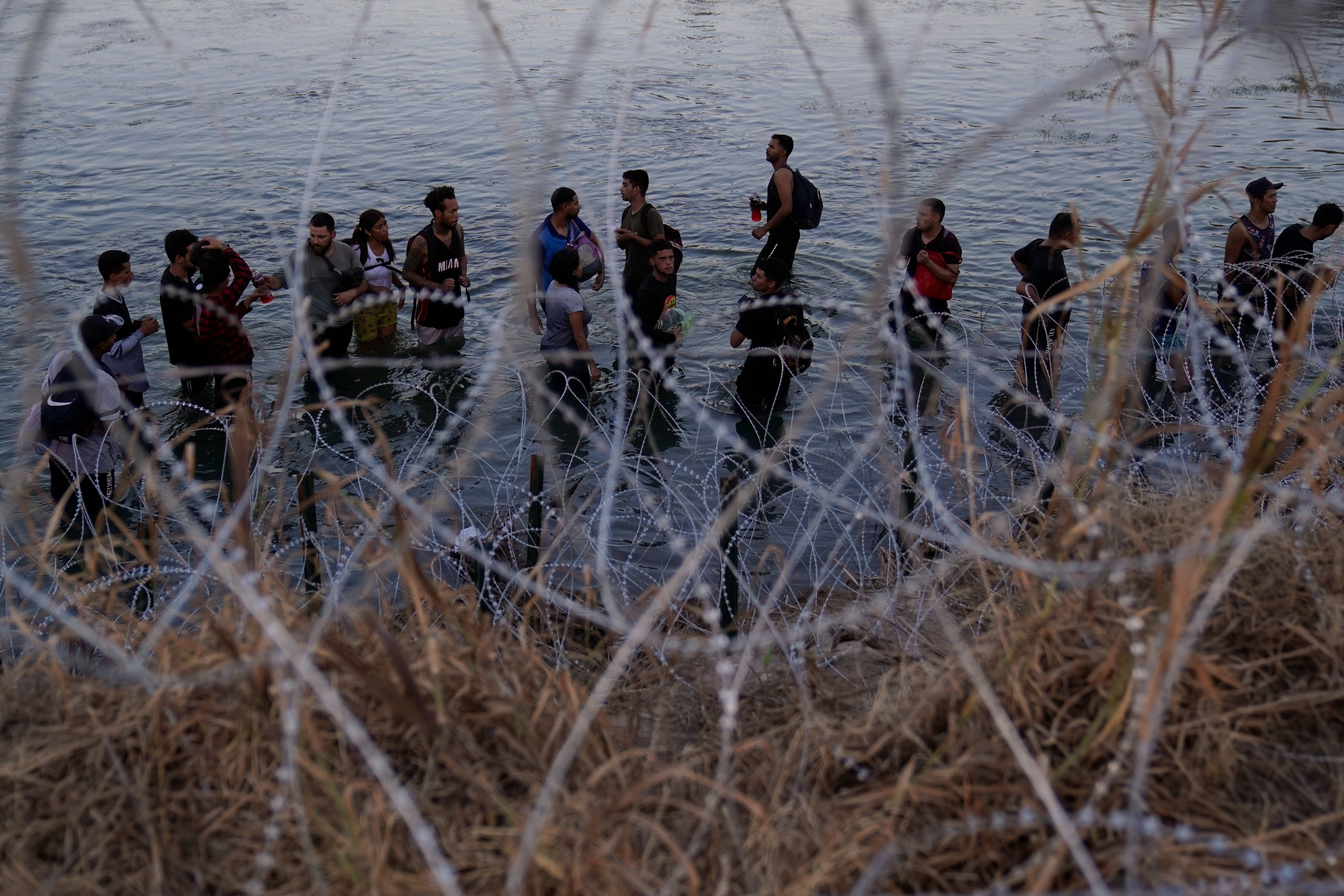“How much did you pay to have your daughter raped?”
“Your wife and daughter will pay for the trip with their bodies.”
“If you cross into Texas illegally, you will regret it forever.”
These slogans are among the blunt and at times graphic messages the state of Texas is paying an estimated $100,000 to install on billboards across Mexico and Central America in the coming weeks, in the hopes of deterring future illegal immigration.
40+ billboards have been strategically placed in El Salvador, Guatemala, Honduras, & Mexico.
— Greg Abbott (@GregAbbott_TX) December 23, 2024
To reach migrants from all over the world trying to cross into Texas, the billboards are translated into Spanish, Arabic, Chinese, & Russian.
The message is clear: stay out of Texas. pic.twitter.com/x5JJY8Pu6o
“We’re here to expose the truth,” Texas Governor Greg Abbott said at a recent press conference about the plan, calling it “tough medicine.”
“There is a largely unspoken sexual assault crisis impacting women and children, children migrating to the Texas border,” Rose Luna, the CEO of the Texas Association Against Sexual Assault, added at the event. “ … We applaud the state in recognizing the silent crisis and for acknowledging and elevating this very serious yet hidden issue.”
The billboards are part of Texas’s larger, controversial effort to pursue its own state-level immigration enforcement actions, which are typically the province of the federal government.

The state has spent over $11 billion building border walls, busing migrants to Democratic cities, and surging state troops to the border, part of what Abbott has declared is an effort to fend off an “invasion” of immigrants that gives him special emergency powers.
Some observers argue these billboards, which will be translated into four languages—Spanish, Arabic, Chinese, and Russian—are telling migrants what they already know, which is that traveling to the U.S. to cross the border often carries the risk of sexual violence and buse from “coyote” guides across the border to cartels to Border Patrol agents themselves.
“There seems to be a misunderstanding on two counts,” University of California Davis migration and trafficking expert David Kyle toldThe Washington Post. “First, that if migrants only knew the dangers, they wouldn’t take the risks. Second, we also seem to have a lack of awareness [of] the depth of the challenges in their home communities.”
Moreover, even if people don’t attempt an illegal crossing, they still face high risks merely heading to the U.S., where they can legally request asylum by presenting themselves to federal officers.

A Reuters investigation in 2023 documented a spike in sexual violence against migrants in border cities like Reynosa and Matamoros, and data suggests women are making up an increasing percentage of those found dead at the border.
And making it inside the U.S. is sadly no guarantee of safety either for immigrants.
In July, the Department of Justice sued a Texas nonprofit, accusing it of a pattern of sexual abuse against unaccompanied immigrant children held in their custody.
Texas’s border crackdown has joined a Biden administration that’s sought to tighten immigration in its final months in office.
The president placed limits on asylum over the summer, which observers say has brought border-crossings down. Meanwhile, recently released data shows that Immigration and Customs Enforcement deported more than 271,000 people over the last fiscal year, the highest level since 2014.







